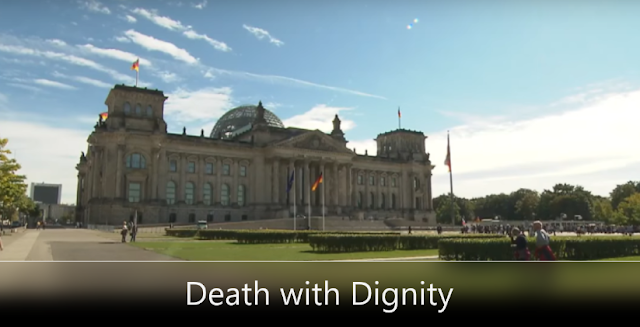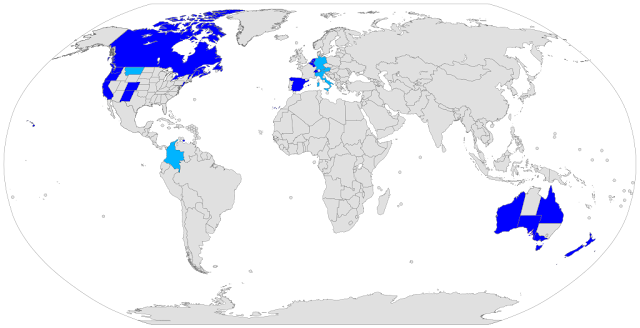Loneliness and Isolation: Paths to Greater Connection and Joy in Life
It is important to know that it is okay to feel lonely sometimes. It's important to realize that you are not alone having this feeling - there are always ways to reconnect with others - through a simple conversation, a small gesture, or even a digital connection.
Loneliness and isolation affect people differently depending on age, gender, and cultural background:
Age Groups: Young people (16-30 years old) often experience loneliness due to the transition into their careers or the lack of deep relationships. Adults (30-60 years old) are often isolated due to work and family commitments. Older people (60+) are particularly vulnerable to isolation due to losses, physical limitations, and fewer social contacts.
Gender: Women tend to experience loneliness more intensely and emotionally and seek support more often, while men are less likely to express their feelings and tend to deal with isolation more independently.
Cultural Differences: In Western cultures, loneliness is more frequently addressed, and there are often local and national support options and resources. In many other regions and cultures, isolation is often seen as a personal or societal failure, which makes it harder to seek help.
Despite these differences, loneliness and isolation are experiences that many people face, and talking about them can be difficult. However, they can be overcome through social networks, digital communication, in-person meetings, or even a conversation with a stranger while walking - but if it becomes overwhelming, interpersonal and professional support can help.
Loneliness and Isolation: Paths to Greater Connection and Joy in Life
Loneliness and isolation – two terms often mentioned together but with very different impacts on our lives. Both can make us feel alone and disconnected from the world, but the key lies in understanding these feelings, what they really mean, and how we can actively change our situation.
Loneliness
Loneliness is an inner state. It's less about the number of people around us and more about how we feel in our relationships. We can feel lonely in the midst of a crowd if the connection we desire is missing. It’s a longing for true closeness and understanding. But even though loneliness is painful, it is not the end of the journey. It shows us where we can recognize and actively address our need for connection.
Isolation
Isolation, on the other hand, is the external separation from others. It happens when we are physically cut off from social networks – whether due to circumstances or choices. But isolation is also not a state we cannot change. It is a challenge we can take on to reconnect with the world. We are never too far to take the first step and experience closeness.
The Difference
The true difference between loneliness and isolation lies in the fact that loneliness comes from within, while isolation comes from external circumstances.
Both are states – both are challenges we can overcome.
We can learn to better understand ourselves and find ways to connect with others.
How can we overcome loneliness and isolation?
The first step is to accept ourselves and give ourselves permission to acknowledge these feelings. Once we do that, we can actively change our situation:
We can make new connections, strengthen our social networks, and also use digital channels to interact with others.
Mindfulness and self-care – such as meditation or creative hobbies – help us strengthen our connection to ourselves. And if necessary, we can seek professional help to find our way to greater well-being.
Loneliness and isolation can also be seen as a starting point for a deeper connection with ourselves and others.
--- --- --- --- --- --- --- --- --- --- --- --- --- ---
Hotlines for loneliness and isolation ...
... in the United States
988 Suicide & Crisis Lifeline - If you need to talk, dial 988
Further hotlines https://findahelpline.com/countries/us/topics/loneliness
... in Germany
Krisenchat für Menschen unter 25 Jahren
Krisenchat bietet psychosoziale Beratung für Kinder und Jugendliche unter 25 Jahren. Gechattet wird auf Deutsch. Der Chat erfolgt via SMS oder Whatsapp, direkt über die Webseite von Krisenchat.
krisenchat Deutsch | 24/7 Krisenberatung per Chat krisenchat english | 24/7 Krisenberatung per Chat
Kontakte - Hilfe Im Fall von psychiatrischer Krisen
Im Notfall
Notaufnahme in der Akutpsychiatrie: In größeren psychiatrischen Kliniken existieren Notaufnahmen mit Fachärzt*innen, die ähnlich funktionieren wie die körperliche Notfallmedizin. Diese sind 24 Stunden täglich erreichbar.
Schnelle Hilfe im Notfall: 112 (Rettungsdienst)
Bei Vergiftungen:
Bei lebensbedrohlichen Symptomen wie Bewusstlosigkeit, Krampfanfällen etc. rufen Sie bitte direkt den Notarzt – in Deutschland über die Nummer 112
Giftnotruf
Kostenfreie Informationen bei Verdacht auf Vergiftungen geben rund um die Uhr folgende Giftnotrufe:
Giftnotruf der Charité: 030 19240
Giftnotruf der TU München: 089 19240
Vergiftungs-Informations-Zentrale: 0761 19240
Hilfe - Rufnummern und Websites
- Sozialpsychiatrischer Dienst
- eigenen Wohnort
Telefon: 0228 71002424
Nationale Kontakt- und Informationsstelle (NAKOS) zur Anregung und Unterstützung von Selbsthilfegruppen
Die NAKOS ist die zentrale bundesweite Anlaufstelle in Deutschland rund um das Thema Selbsthilfe. Als Knotenpunkt vernetzt NAKOS die relevanten Akteure. Interessierte, Betroffene und Angehörige finden hier alle notwendigen Informationen. Dabei zeigt NAKOS die Vielfalt und Möglichkeiten gemeinschaftlicher Selbsthilfe auf und fördert und vertritt sie gegenüber Politik und Gesellschaft.
Telefon: 030 - 31 01 89 60
Hilfe - Suizidprävention
Telefonseelsorge, bundeseinheitliche Nummern
Die Telefonseelsorge bietet kostenfreie Beratung per Telefon, Mail, Chat oder vor Ort. Sie ist für jeden da, für alte und junge Menschen, Berufstätige, Nicht-Berufstätige, Auszubildende, Rentner, für Menschen jeder Glaubensgemeinschaft und natürlich auch Menschen ohne Kirchenzugehörigkeit. Die Gespräche sind anonym und die Mitarbeiter*innen rund um die Uhr erreichbar.
Telefon. 116 123
http://www.telefonseelsorge.de/
Evangelisch.: 0800 111 0 111
Katholisch: 0800 111 0 222
Die Telefonseelsorge hat eine gute und bewährte App entwickelt: den KrisenKompass.
Der KrisenKompass ist eine App, die dank ihrer Funktionsweise eine Art Notfallkoffer für Krisensituationen darstellt. In den Koffer können Sie positive Gedanken oder Fotos, Erinnerungen oder Lieder packen – Ihr persönliches Rüstzeug für schlechte Momente. Dazu dienen etwa die Tagebuchfunktion und die persönlichen Archive.
Darüber hinaus gibt es Materialien, die in Krisensituationen hilfreich sind, Hinweise zu beruhigenden Techniken, sowie direkte Kontaktmöglichkeiten zur TelefonSeelsorge und anderen professionellen Anlaufstellen. Was stabilisiert Sie, was hilft Ihnen jetzt gerade? Auf diese Fragen gibt die App Ihnen Antwort. KrisenKompass - App
Kinder- und Jugendtelefon: Das Angebot des Vereins „Nummer gegen Kummer“ richtet sich vor allem an Kinder und Jugendliche, die in einer schwierigen Situation stecken. Erreichbar montags bis sonnabends von 14 bis 20 Uhr unter 11 6 111 oder 0800 – 111 0 333. Am Sonnabend nehmen die jungen Berater des Teams „Jugendliche beraten Jugendliche“ die Gespräche an. nummergegenkummer.de.
Elterntelefon: 0800 111 0 550
Muslimisches Seelsorge-Telefon: Die Mitarbeiter von MuTeS sind 24 Stunden unter 030 - 443 509 821 zu erreichen. Ein Teil von ihnen spricht auch türkisch. mutes.de
Jüdische Bundesweite telefonische Hotline folgt asap
Hebräischsprachige Hotline "Matan": ‚Matan‘ ist ein Projekt der Beratungsstelle ‚OFEK‚ e. V. und der Zentralwohlfahrtsstelle der Juden in Deutschland (ZWST). Telefonnummer: 0800 - 000 16 42 Hotline-Zeiten: Jeden Tag der Woche 20:00-22:00 - Das Projekt wird in Zusammenarbeit mit der Kirchlichen Telefonseelsorge (KTS) durchgeführt und durch die Deutsche Fernsehlotterie gefördert.
Deutsche Gesellschaft für Suizidprävention:
Eine Übersicht aller telefonischer, regionaler, Online- und Mail-Beratungsangebote in Deutschland gibt es unter suizidprophylaxe.de
More drawing and paintings on https://www.instagram.com/holgermaassen/
Sources:
National Institute on Aging (USA, 2018). Loneliness and Social Isolation Linked to Serious Health Conditions.
Victor, C. R., & Yang, K. (2012). The Prevalence of Loneliness Among Adults: A Case Study of the United Kingdom. The Journal of Psychology: Interdisciplinary and Applied.
World Health Organization (WHO). Mental Health and Social Isolation – WHO has published several reports and resources highlighting the connection between social isolation, loneliness, and mental health, both in Western and collectivist cultures.






Comments
Post a Comment